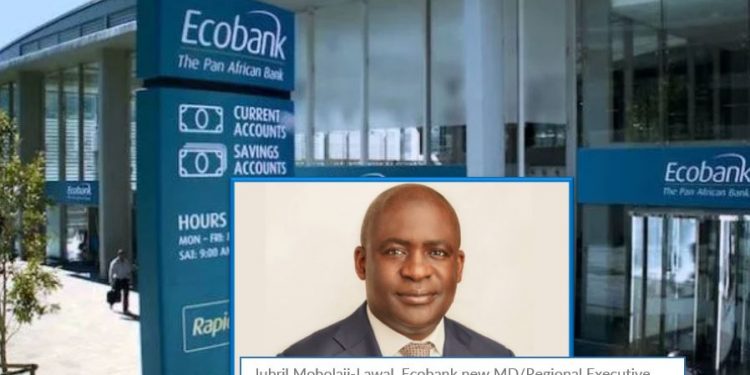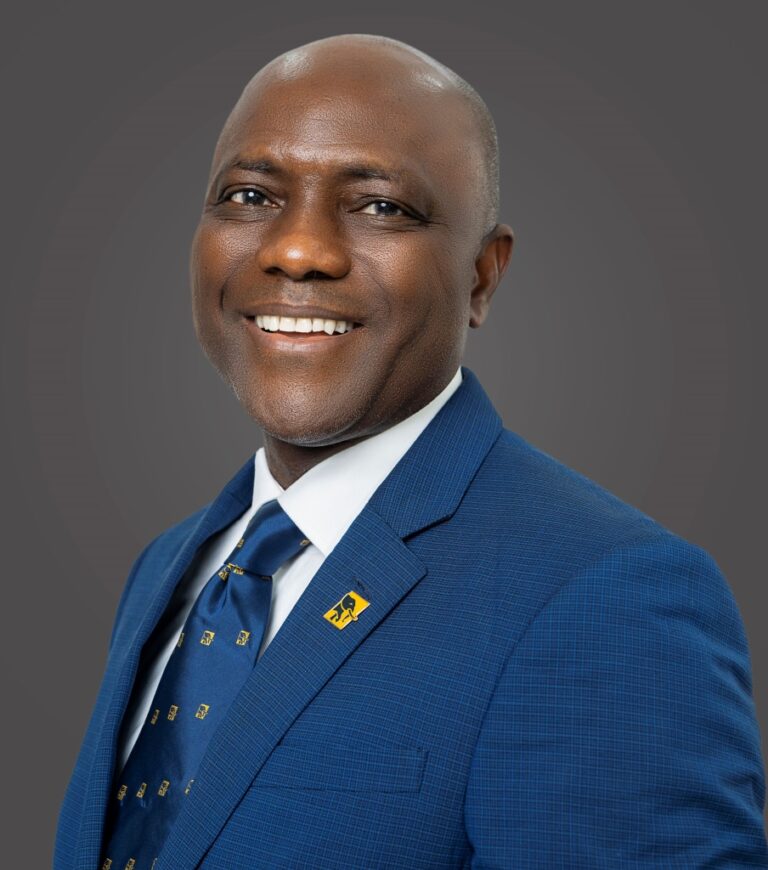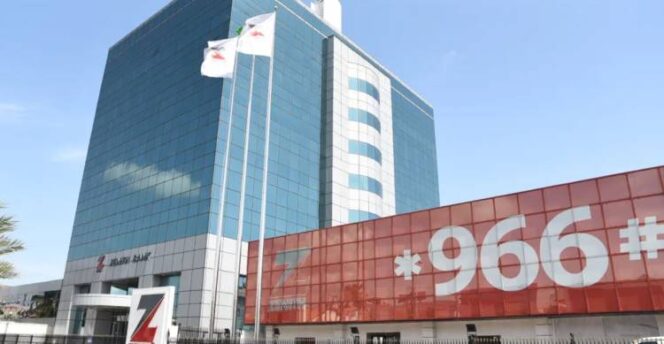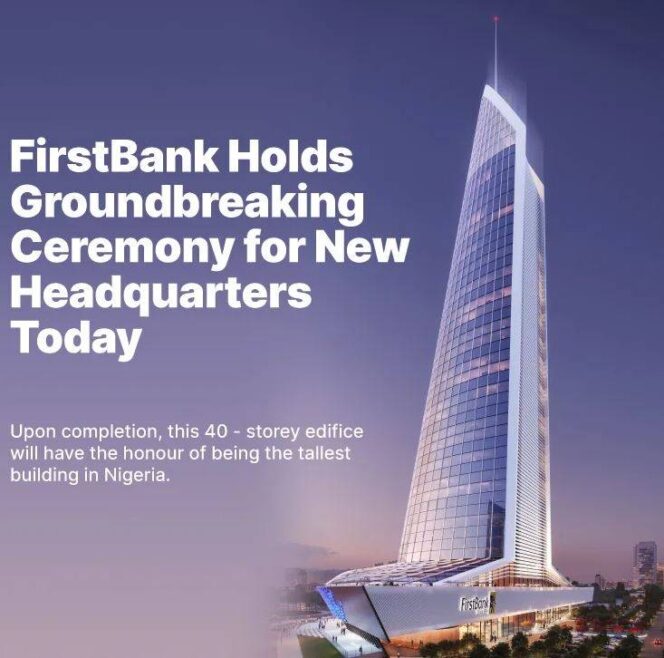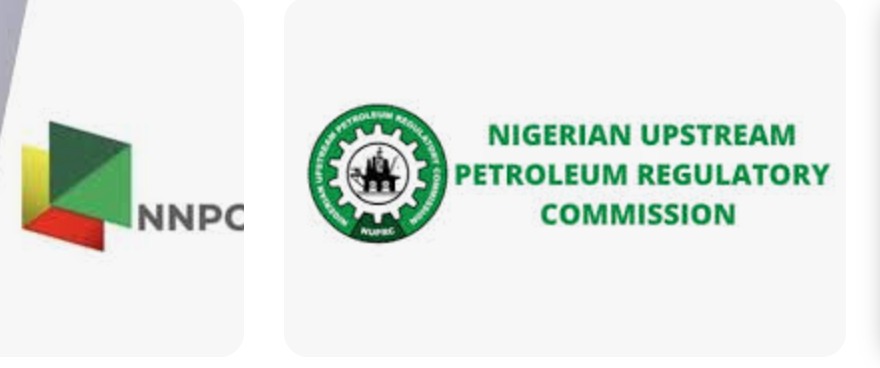 Incorporated as a public limited liability company on October 7, 1986, Ecobank Nigeria Plc is a key subsidiary of the independent banking group, Ecobank Transnational Incorporated (ETI)headquartered in Lome, Togo, with operations in 36 countries across the African continent. The operations of Ecobank Nigeria are supervised and regulated by the Central Bank of Nigeria (CBN) as well as the National Deposit Insurance Corporation (NDIC).
Incorporated as a public limited liability company on October 7, 1986, Ecobank Nigeria Plc is a key subsidiary of the independent banking group, Ecobank Transnational Incorporated (ETI)headquartered in Lome, Togo, with operations in 36 countries across the African continent. The operations of Ecobank Nigeria are supervised and regulated by the Central Bank of Nigeria (CBN) as well as the National Deposit Insurance Corporation (NDIC).Ecobank Transnational’s growth in assets, customer base, deposits and branches(especially in its Nigerian subsidiary)followed a string of dubious acquisitions of defunct Nigerian banks like All States Trust Bank Plc, Hallmark Bank Plc, African International Bank Plc (AIB) and Oceanic Bank International.
|
|||||||||||||||||||||||||||||||||
|
NOTE: ETI owns 100% shares of Ecobank Nigeria, which in turn contributes 40% of its earnings
In spite of the rapid but haphazard expansion of ETI’s footprint in this country, Ecobank is by no means a Nigerian bank. The bank’s holding company was established in 1985 under a private sector initiative spearheaded by the Federation of West African Chambers of Commerce and Industry, with the support of the Economic Community of West African States (ECOWAS). At the time, the largest shareholder was the ECOWAS Fund for Cooperation, Compensation and Development, the development finance arm of ECOWAS.
It is no surprise that till today Ecobank is associated with unending controversies and ethical challenges. The bank was very clearly plagued from its very beginning by a Vulture Mentality in its strategic focus, acquisitions, customer relationships and corporate culture. This predator mindset was most evident in their rabid appetite for zombie banks and corporate carrion.
Specifically in Nigeria, Ecobank has been marred by several well publicized corporate governance lapses. The bank’s growth model focused on hunting down and devouring local manufacturers, producers, entrepreneurs and multiserviceorganizations who, as a result of either various unforeseen environmental factors, or political and economic adversities, wereunable to generate sufficient growth from their legitimate operation to do anything other than service or partially service their current liabilities.
PREAMBLE – The end of a beginning
Between 2006 and 2011, Ecobank’sNigerian operations were characterized by a multitude of ugly decisions starting with an ETI acquisition in 2006, of the assets and liabilities of All States Trust Bank (witha 65 branch network and negative shareholder funds of N48 billion). The Economic and Financial Crimes Commission (EFCC) had earlier arrested the Chairman of the All States Trust Bank, Chief Ebitimi Banigo, over debts running into billions of naira. Also acquired in 2006 was Hallmark Bank.
In 2008, ETI acquired and took over the private and public sector deposit liabilities of African International Bank (AIB). In October 2011, ETI acquired Oceanic Bank Plc. The entire share capital of Oceanic Bank was canceled, while its shareholders received one ordinary share of $0.025 and $0.428 preference shares of $0.1032 in ETI, for every 20 held in Oceanic Bank.
On July 30, 2011, Oceanic Bank and Ecobank Transnational Incorporated entered into a Transaction Implementation Agreement (TIA), setting out the framework for the Oceanic acquisition. The TIA provided that following the acquisition, ETI would cause its Nigerian subsidiary, Ecobank Nigeria, to enter into a scheme of merger with Oceanic under Part XII of the Investment and Securities Act (No.29) of 2007.
ETI acquired 100 per cent of Oceanic Bank. Following this, the shares of Oceanic Bank were delisted from the official list of the Nigerian Stock Exchange, while shareholders in the enlarged Ecobank were to get one share in ETI for every 5.16 Oceanic shares owned. The scheme also noted that at the end of the merger, ETI will own the merged entity, while the shares of Ecobank will subsequently be delisted from the NSE’s Daily Official List
A FAILED MARRIAGE
There is no doubt that Nigeria is EcobankTransnational’s Achilles heel, stemming from a self inflicted and/or systemic vulnerability. Fundamentally, in spite of repeated claims to the contrary by ETI, the marriage proposal between their acquired Oceanic Bank Plc and their subsidiary Ecobank Nigeria Plc was never consumated. At best it may be an affair that has subsisted since 2011.
It was perhaps, with the same intention to gain leverage that ETI in 2011, completed the acquisition of Oceanic Bank International, having secured N290 billion forbearance from AMCON. But that appears to be the only good news that came out of the merger, Ecobank subsequently began to battle with liquidity and management challenges.
In February 2012, the then Managing Director of Ecobank Nigeria, Mr. Jibril Aku,was quoted as having publicly declared his bank’s “complete takeover of Oceanic bank”. The context of his claim was also specific on a unified Branch and ATM network, and the false belief that theircombined entity would provideshareholders and employees access to a stronger banking group
Even beyond a merger or marriage, there is an underlying crisis of confidence in whatever relationship purportedly exists between Oceanic Bank Plc (now defunct) and Ecobank Nigeria Plc. A fullinterrogation of the legality of the purported merger, or compliance with Nigerian regulations (Investment & Securities Act), may be beyond the scope of this report. Suffice to say however, that a multiplicity of events since 2011 have contributed to the prevailing notion of an untidy or incomplete merger.
RUSSIAN INVASION
Ecobank’s character started unraveling while it was trying to halt a threatened Russian invasion…
How and why did this happen?
The answer to this interrogation, or at least a partial answer, comes from an audit review conducted by Ernst & Young, and a letter written by a former chairman of ETI. In his letter, the former chairman addressing Nigeria’s legal and regulatory authorities, explains that everything began in 2007, when Renaissance Capital, the Russian investment bank, holding a 24.5% stake in ETI’s capital, attempted a hostile takeover of the group. Obviously, not all board members were happy about this, especially Anglo-Saxon lobby made of Public Investment Corporation of South Africa (PIC), which held at the time 19% of Ecobank, and Nedbank (20% at the time).
The letter states that Arnold Ekpe, former chief executive officer of Ecobank, and PIC, during board meetings, discussed of ways to facilitate Nedbank’s takeover by PIC, a move which would have allowed the South African pension fund to take control of 40% of Ecobank. “Further discoveries have also shown that the then GCEO, Mr. Arnold Ekpe had private business connections with the PIC and that he was involved in a plan for the PIC to gain control of NEDBANK thereby creating a situation where the PIC would control a combined 40% stake in ETI. These disclosures were made at a Board meeting held on 30th August 2013 by Mr. Sipho Mseleku, a South African Director on the Board and Dr. Daniel Majtila, the Director representing PIC on the Board and are recorded in the minutes of the meeting,” the document says.
The same source indicates that Ekpe was later appointed Chairman of Atlas Mara, an investment company co-founded by Bob Diamond (Former managing director of Barclays Plc), to buy significant shares of ETI. In this context, it was more than obvious that a takeover by the Russian bank was not well seen. Therefore, a defense strategy, involving a shareholding increase, was conceived to reduce Renaissance Capital’s stake in ETI’s shareholding.
PHASE TWO of the scheme to prevent Renaissance Capital from taking over (Russian Invasion) consisted in purchasing a large volume of shares. ETI’s management at the time decided to proceed to a capital increase in the framework of which Ecobank Nigeria would lend stockbrokers loans to buy ETI shares. Doing so, the group would raise its capital, through almost-fictitious shareholders. It was quite a complex scam. The letter from the former Chairman also said the results published for the Rights Issue that finally took place in 2008 were “false”.
The timeline of events can be summarized as follows:
UNENDING CORPORATE CRISIS
Corporate crisis has been defined as an event or the aggregate of events that cause a company significant trauma plus distress,resulting in inevitable change…often for the worse, and always involving the company’s reputation, management, brand or market share. Ecobank Nigeria has become both a notorious purveyor, and the symbol of corporate crisis in the banking sector.
Successive Ecobank Nigeria Plc CEOs have repeatedly mouthed platitudes like “we want to be the most respected bank in the country”. For those still searching for evidence of the bank’s failure in this regard, there is none clearer than the following chronicles:
2008
According to an Ernst & Young report, a number of irregularities were noticed in relation to the loans granted by Ecobank Nigeria in 2008, and also in relation to the capital increase process. Shares purchased unlawfully with non-guaranteed loans plunged, and the debt resulting from the move could not be reimbursed as it was internal.
“Sometime in 2008, the Executive Management of ETI approached the Board to launch a Rights Issue to raise $2.5 billion from the capital market. This rights issue was launched in August 2008 and involved the bank in over one billion naira in expenses. Unfortunately before the offer could close, the global financial crisis had set in and it became obvious that the projected $2.5 billion could not be raised. Upon closure of the public offer, the ETI Executive management reported to the Board that the subscription met the minimum percentage prescribed by the Commission. It was subsequently revealed that this was false and that the executive management of ETI deliberately misled the Board, the NSE and the Commission,” the letter reads.
Ernst & Young’s report is much more detailed, making mention of shady bank transactions. It also notes that those that purchased the shares, under the rights issue, either did not pay for the assets, or had their money returned to them. Thierry Tanoh the then Group Chief Executive Officer of ETI was forced out on March 12, 2014. In a twist to the matter however, Tanoh approached a Togolese court seeking damages on the ground that he was wrongly booted out by the bank. The Industrial Court hearing arguments from both parties, upheld Tanoh’s case and awarded him $11.6 million as damage.
Thursday, 21 March 2013 /SEC Nigeria Release
2013
In March 2013, the Securities and Exchange Commission (SEC) suspended Ecobank Nigeria Plc from acting as a receiving banker and from all capital market activities. The suspension was as a result of the role played by the bank in a complaint by Avil Services Ltd relating to a margin loan transaction with Arian Capital Management Ltd.
Under the said transaction, Arian Capital Management Ltd (a Fund Manager) advanced margin loan to Avil Services Ltd which was secured by 555, 555 units of First Bank of Nigeria Plc shares belonging to Avil Services Ltd. At the termination of the margin facility, Avil Services Ltd demanded for the lifting of the lien placed on the shares but was informed by Arian Capital Management Ltd that the said shares were used as collateral for a “Global Margin Facility” that was granted to it (Arian Capital Management Ltd) by Ecobank Nigeria Plc in a tripartite arrangement. The suspension was imposed on Ecobank Nigeria Plc on February 5, 2013 for its perceived connivance with Arian Capital Management Ltd to convert the 555, 555 units of First Bank of Nigeria Plc shares belonging to Avil Services Ltd.
2013 – 2014
The year 2013 eventually proved to be a watershed of sorts for Ecobank as damning revelations came to light with extensive documentary evidence of “SUSPECTED SECURITIES FRAUD, SHARE PRICE MANIPULATION, ILLEGAL TRADING IN RESPECT OF ECOBANK TRANSNATIONAL INCORPORATED (ETI) SHARES CONTRARY TO CENTRAL BANK OF NIGERIA REGULATIONS (CBN) AND SECURITIES AND EXCHANGE COMMISSION (SEC) RULES”
In mid 2013, Financial Times reported that Ecobank was caught up in boardroom squabbles about the borrowings of its leadership, and debts associated with its chairman Mr Kolapo Lawson then totaling over N3 billion, plus a crisis of confidence among its shareholders, and a petition by ETI Head of Finance, Ms Laurence Do Rego to the Nigerian Securities and Exchange Commission.
Meanwhile Chairman of Ecobank Transnational Incorporated, Mr. Kolapo Lawson, debunked allegations of wrongdoing concerning alleged insider loan facilities obtained by Agbara Estates, a family-owned firm which he chairs, claiming that a N1.3 billion loan had been repaid days before it was due. Lawson pointed out that he had been associated with the bank for more than 31 years having written the business proposal in 1982.
He said he joined the pioneer board in Togo in 1987 and was appointed to Ecobank Nigeria’s board in 1989. He said that on the death of his father, late real estate mogul, Chief Adeyemi Lawson in 1993, he was invited to chair the board and has since then led the bank through various stages of growth and expansion.
By yearend 2013 Mr Kolapo Lawson stepped down as Chairman of ETI, while the Nigerian Securities and Exchange Commission (SEC), said its investigation into the alleged breach of corporate governance in the bank was still ongoing. Part of a statement from Mr Lawson read :
“In order to give total credibility to these reviews, I have decided it would not be appropriate for me to be the person leading this process. The Board has assured me of its commitment to seeing these investigations through and I will continue to monitor this as an interested party. I am very conscious of the uncertainty that current media speculation has cast over the institution. I therefore wish to take the necessary steps to bring this to an end. As the head of such a respected global institution, I must act when there is even the slightest perception that the interests of that institution might be at risk. I therefore step aside as Chairman of Ecobank Transnational.”
By his removal, Mr Kolapo Lawson joined the ranks of Chairmen and Board members of banks who were forced to step down under clouds of allegations regarding possible fraud or attempted mismanagement of bank funds. These mostly centered on Directors engaging in insider trading, borrowing from their banks and not repaying the loans and asking Financial Directors to juggle the books to cover up the unethical conduct until it was impossible to bury the truth anymore.
2014
Early in 2014, Nigeria’s Securities and Exchange Commission (SEC) issued a scathing assessment of “governance lapses” at Ecobank Transnational and called for an extraordinary general meeting at the pan-African lender. The SEC listed a string of failings, including “the absence of a clear vision and strategy to drive the institution”,conflicts of interests at the top and a lack of transparency in pay procedures at the group, which is also known as ETI. It also listed among weaknesses “the board’s role in overseeing the achievement of ethical behaviour”.
At the time also, overall, the SEC said the findings of a report into corporate governance at the bank carried out on its behalf by KPMG, the global accountancy firm, constituted “an important basis for convening an extraordinary general meeting of shareholders”
2012 – 2019
At a time, the Public Investment Corporation (PIC), an asset management firm wholly owned by the government of the Republic of South Africa, was the biggest shareholder in ETI.
One of the Public Investment Corporation’s (PIC’s) first investments outside SA pushed the limits of responsibility and undermined its role as the steward of millions of civil servants’ savings. This follows from the testimony at the commission of inquiry into the PIC on Tuesday by Altu Sadie who was employed as the CFO for cards and electronic banking at the West African financial services group Ecobank Transnational. Sadie described how the PIC initially invested $250m in April 2012, equivalent to R2bn at the time, into Ecobank, based in Togo and active in 37 countries globally including Nigeria.
The PIC’s investment was augmented by a $98m annual revolving loan in December 2016 and the purchase of a $250m convertible bond in September 2017, Sadie said. The PIC’s initial investment, through which it acquired an 18% stake in Ecobank, caused it to receive the right to appoint a director to the board. It was clear that from witness testimony of bank executives, that PIC investment into Ecobank was a poor one, speculative and was down $165m (66% decline) over seven years
2017
Ex- Bankers of eight non-consolidated banks have sued the Nigeria Deposit Insurance Corporation (NDIC), Central Bank of Nigeria (CBN) and four acquirer banks over unpaid N9.8 billion terminal benefit 11 years after disengagement from the services of the non-consolidated banks. A breakdown of the claimants’ gratuities showed that Allstates and Hallmark Bank acquired by Ecobank were owed over N7billion
A bank acquires trust and respect when compliance with industry regulations, rules and moral norms become part of the DNA of the whole organisation. This is an environment where ethics are top priority. In other words, while being mindful of the principles of profitability and productivity, banks are obliged to obey certain ethical principles of banking profession and organizational ethics, which include honesty, integrity, social responsibility, accountability and fairness. Nothing illustrates the severity of ethical challenges in the Nigerian banking system better than the audacity of serial offenders like Ecobank Nigeria Plc and its parent ETI.
Entrepreneurs especially should not be made to suffer despondence and adverse consequences from ECOBANK’s general insecurity and poor corporate governance, because the bank has chosen to walk the wrong path.
2019
Media reports in late 2019 indicate that Ecobank Nigeria, a key subsidiary of the Ecobank Transnational Incorporated (ETI) and its management were the focus of Nigeria’s banking regulator, the Central Bank of Nigeria (CBN) and the Economic and Financial Crimes Commission (EFCC) following several financial scandals by the bank and its staffers.
Top on the list of financial controversies which have bedevilled the bank is an alleged fraud running into N800 million or above against the Nasarawa State government. This was unearthed following the engagement of a forensic accounting consultancy firm based in Lagos by the Nasarawa State Board of Internal Revenue to assist in the improvement of its internally-generated revenue (IGR) base of excess bank charges, high network individuals, withholding tax on dividends, interest, and deposits against banks operating in the state from 29th May 1999.
After a hectic and thorough forensic auditing by the firm, it was discovered that the Akinwuntan-led Ecobank Nigeria Limited brazenly defrauded the Nasarawa State government of an earth-quaking sum of over N800 million in unremitted tax and 10 per cent withholding tax on credit interest monies.
Sources further alleged that apart from different cases of fraud facing the bank in court, the commercial bank is also grappling with many other crises that tend to threaten its survival. One of them is its alleged poor services which are staring its customers in the face. Already, most of its branches are awash with complaints of unsatisfied customers whose sing-song is their plan to close their accounts due to long hours they experience to get services from Ecobank staff.
2021
November 11, 2021, the House of Representatives Committee on Customs and Excise has recommended the suspension of Ecobank Nigeria Plc from further collection of customs’ duties, over infraction in the collection of the duties. The Committee Chairman, Leke Abejide, said this at the resumed investigative hearing of the committee on some banks’ refusal to remit customs duties to the federal government’s coffers.
He said that the bank would be suspended until it was able to pay the outstanding of N4.3 billion customs’ duties the bank refused to pay to the federal government. Mr Abejide said that the committee had been on the assignment for over a year, stressing that any banks that failed to show the amount collected for customs duties would also be suspended.
In fact the question that is still on everyone’s lips today is ‘how did Ecobank accumulate up to $864 million of bad debts and who will pay the bill?’
Ecobank possesses a litany of litigations surrounding its clear corporate governance lapses, its accumulated debts of dubious origin, illegal insider trading and stock manipulation. Again, entrepreneurs especially should not be made to suffer despondence and adverse consequences from Ecobank‘s general insecurity and poor corporate governance, because the bank has chosen to walk the wrong path.
Mass Media image laundering is no panacea. As the maxim says….Good advertising only makes a bad product fail faster!
PRAYERS FOR THE PREY
Ecobank is synonymous with the proverbial Shylock, an exacting creditor, a hard-hearted moneylender with neither pitynor empathy in business dealings. Like the vulture that consumes up to 20 percent of its own body weight in a single sittingleaving little or nothing of the carcass, Ecobank’s ultimate gameplan is to prey on local businesses and their owners until there is nothing left to devour.
Vultures are not adept at hunting, but they have been known to opportunistically kill wounded animals and hasten their deaths. In like manner, Ecobank’s notoriety derives from scavenging on troubled corporations, and the bank will also menacingly follow or hound a wounded customer, patiently waiting for it to perish.
Ecobank promotes itself as an African bank for Africans, but the bottom line is that Ecobank is not a Nigerian bank. In its desperation to grab opportunities in Nigeria, Ecobank has almost always taken advantage of Nigerian entrepreneurs and situations. The bank will always choose a pathway for getting ahead, and always at the expense of Nigerians and Nigerian businesses.
The Top 5 banks by Market Capitalization are still the same Top 5 Lenders in Nigeria’s banking system, albeit in a slightly different order.

